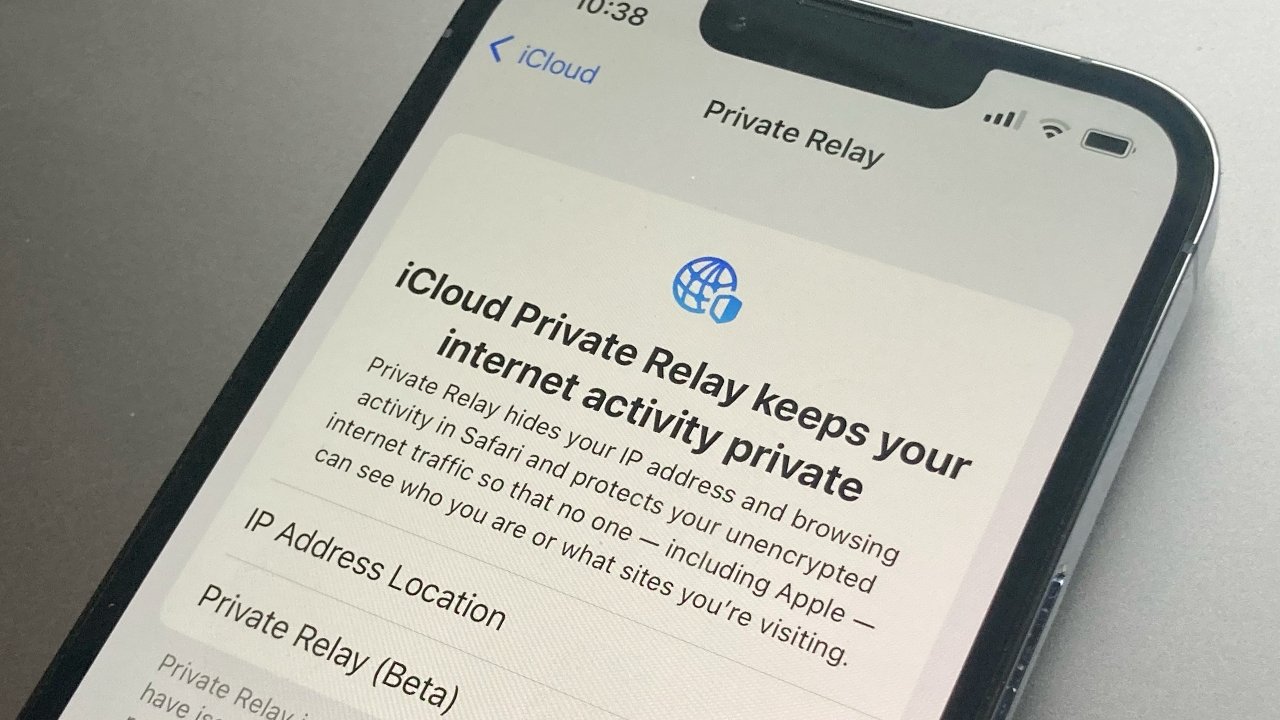EU carriers want Apple's Private Relay blocked
Four European carriers have written to the European Commission claiming that Apple's Private Relay in iOS 15 undermines "digital sovereignty," and that it should be stopped.

Apple's Private Relay, currently still in beta, is a VPN-like service for iOS 15, iPadOS 15 and macOS Monterey, which shields users from having their precise location data revealed. It has already been revealed that Apple is not implementing the feature in all countries, and now European carriers are asking for local exclusion too.
A letter to the European Commission, sent in August 2021 and now seen by The Telegraph, four carriers have raised their objections. T-Mobile, Orange, Vodafone, and Telefonica, jointly say that Apple's service "will have significant consequences in terms of undermining European digital sovereignty."
"Furthermore, private relay will impair others to innovate and compete in downstream digital markets," says the letter, "and may negatively impact operators' ability to efficiently manage telecommunication networks."
Apple could potentially be prevented from implementing Private Relay if the company is classified as a "digital gatekeeper" under the EU's Digital Markets Act. However, that act, already much delayed, has yet to be approved by European governments.
Read on AppleInsider

Apple's Private Relay, currently still in beta, is a VPN-like service for iOS 15, iPadOS 15 and macOS Monterey, which shields users from having their precise location data revealed. It has already been revealed that Apple is not implementing the feature in all countries, and now European carriers are asking for local exclusion too.
A letter to the European Commission, sent in August 2021 and now seen by The Telegraph, four carriers have raised their objections. T-Mobile, Orange, Vodafone, and Telefonica, jointly say that Apple's service "will have significant consequences in terms of undermining European digital sovereignty."
"Furthermore, private relay will impair others to innovate and compete in downstream digital markets," says the letter, "and may negatively impact operators' ability to efficiently manage telecommunication networks."
Apple could potentially be prevented from implementing Private Relay if the company is classified as a "digital gatekeeper" under the EU's Digital Markets Act. However, that act, already much delayed, has yet to be approved by European governments.
Read on AppleInsider

Comments
Every demand has to start somewhere.
I see this as the carriers snooping on your internet activity is threatened by this. As they sell that data, they see a loss of revenue and want it banned. If that fails, they'll try increasing prices or throttling or something else.
The game of cat and mouse continues.
Part of the problem is people have been conflating "VPN" and "proxy" for over a decade. The overwhelming majority of "VPN" services are actually acting as proxies. They just happen to use VPN technologies for the client-to-proxy leg. Private Relay is also a proxy service, and it's valid to compare it to others.
My employers laptop VPNs to the office - speed of the connection is capped (but not by my office or my router; I run a VPN network and I also have a few devices that will “relay” too, and I also select my own DNS servers at the connection level. All of these so called “enterprise level features” (as Vodafone support call them) result in speed / connectivity issues even on a “business line”. But use a device without any VPN / relay and the full bandwidth is available. So I’m 100% sure it’s Vodafone’s network and they will throttle any traffic that they cannot analyse and then sell the profile of to a third party.
Once my contract is up I’m moving to an ISP that doesn’t associate my connection with a username and password for access.
It's an opt-in VPN, and it's sufficiently localised to not interfere with local content bans.
if carriers selectively ban VPNs, then they’ve got some explaining to do.
What I understand from their argument is if you feel the need for protection there are pretty good tools out there and you're free to use them, but it's unreasonable to make it the (almost) default option for anyone as this could quickly lead to having rule of law undermined by bad actors (yes I know it sounds like the FBI San Bernardino argument, because it kind of is really).
ISPs have a legal obligation to record specific data and hand it over to law enforcement if requested to do so. Privacy is all fun and games until shit hits the fan, and you're not able to investigate basic crimes because everyone is able to fly under the radar by the flick of a setting.. all because libertarian ideas are overly represented in tech. I'd argue the whole privacy argument out of California isn't doing much in the way of freedom of speech or protecting human rights in many places around the world, and not even that good at protecting people from super precise and intrusive ad targeting (because most people want and accept it anyway).